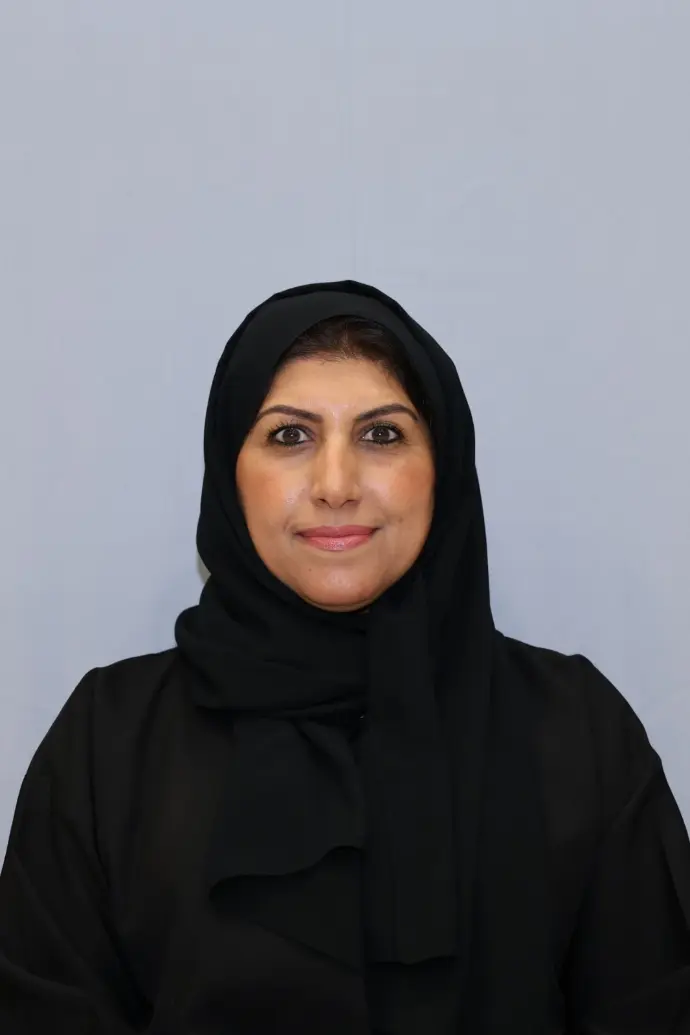Welcome to the Nursing Program at the Oman College of Health Sciences website! Welcome to the incredible opportunities that await you in healthcare setting. As a member of this esteemed organization for many years and director of this program, I have witnessed powerful impact that a nursing can have on society including individuals, families and communities.
You are exploring this particular nursing program which is an extension of a solid historical foundation of nursing education that started in the year 1956 by the American Missionary Association with 6 months nursing course to be later a 2-year nursing program at Mutrah hospital (Al Rahma School of Nursing); to a formal three and a half year curriculum in1979 followed by swift expansion and development were clearly remarkable to sustain a total of 500 -550 nursing students graduating every year. In 2018, the institutes were upgraded from diploma to a BSN by a Royal decree (18/2018, dated June 6, 2018), and to have an independent institution named “Oman College of Health Sciences”.
During your journey at OCHS-Nursing, you are not pursuing a degree; instead you are empowering yourself with knowledge and skills that supports the demand of the healthcare and the evolving profession.
Nursing is not a profession of theory, but a profession full of compassion and a purpose that touches the lives of others by making a difference that forever lasts.
Down below in our website, you will find information about the program, expected outcomes and resources. But there is much more to explore beyond that during your study years; endless venues that does not stop with graduation but to open more doors for you in the real world; and we look forward to be part of this wonderful transformation.
Wishing you the very best in the journey ahead.

Dr. Amal Al Ghassani, Director of Nursing Program
1956: A six-month nursing course by the American Missionary Association
1970: A 2-year nursing program for male orderlies within the Mutrah hospital (Al Rahma School of Nursing)
1972-1981: A total of eighty-three nurses graduated from this course. The period of education also increased from two years to two and a half years.
1979: A formal three and a half year curriculum of competence-based nursing was introduced.
1982: The Institute of Health Sciences [IHS], a multi-disciplinary institute in nursing and allied health sciences, was established.
1985: The first batch of fifty-four nursing students graduated from HIS.
1991: Regional nursing institutes, serving five nationwide locations, namely, Sohar, Nizwa, Ibri, Sur and Salalah, were inaugurated
1993: Muscat Nursing Institute, with modern facility, was established and Ibra nursing Institute.
1994-1997: Rustaq, Dhakiliya, North Batinah, and Al Dhaira Nursing Institutes were established.
2000: Oman Nursing Institute with modern facility was inaugurated
2000- 2018: Total of almost 500 -550 nursing students graduates
2018: Upgraded the certification from diploma to a BSN by a Royal decree (18/2018, dated June 6, 2018), independent institution (Oman College of Health Sciences) (almost 460 nursing graduates)
1. Provide nursing knowledge, knowledge from other disciplines, humanities and liberal education to support clinical decision-making, evidence-based practice and evaluative nursing practice.
2. Prepare entry-level professional nurses to provide care to individuals, families, groups, communities, and populations.
3. Support effective communication with clients, nursing colleagues, and other members of the health care team.
4. Provide a framework by which nurses can serve clients in a variety of settings with diverse needs.
5. Equip nurses with the skills to work as a collaborative member of the health care team, a leader and coordinator of care, and one who participates in professional activities.
6. Advance the development of an ethical value system for informed nursing practice.
7. Foster the use of knowledge and research to form an inquiry-based practice.
8. Foster accountability and responsibility for professional development and life- long learning
At the end of this program, students will be able to:
A: Subject Knowledge
A1 Apply advanced specialized knowledge and skills of nursing sciences, allied health and human sciences to provide holistic nursing care to diverse population and based on society needs
A2 Interpret information of current research and evidence-based practice in nursing care to diverse population, society and significant others
B: Skills
B1 Apply a nursing care plan to individuals, families, groups, communities, and significant others at all levels of the health care delivery system.
B2 Apply critical thinking and clinical reasoning skills in evaluating, revising and managing nursing care as needed in various healthcare settings
C: Communication
C1 Use the principles of communication skills and counseling strategies to promote effective interpersonal relationships with clients and teams
C2 Apply effective communication and interpersonal skills with clients, nursing colleagues, and other members of the health care team in a variety of settings with diverse needs
D: Information Technology
D1 Utilize the most appropriate trends and advanced technology to monitor and providing health care.
D2 Demonstrate skills in using patient care technologies, information systems, and communication devices that support safe nursing practice.
E: Numeracy
E1 Use advanced cognitive and technical skills in numerical reasoning and data analysis to evaluate and modify the nursing care provided
F: Autonomy, Responsibility, and Learning to Learn
F1 Assume a commitment to continuous professional growth, self-reflection, and lifelong learning to maintain and advance nursing competencies.
F2 Mange learning of how to develop and apply nursing care to clients in a structured environment while adhering to policies and procedures.
G: Employability
G1 Take responsibility and accountability for the management of tasks related to the provision of nursing care.
G2 Apply highly specialized entrepreneurial skills and principles of economic efficiency in the utilization of health care resources and contributing to sustainable health care practices.
H: Values
H1 Apply a high level of understanding of socio-economic factors, cultural values in nursing practice
H2 Uphold the highest ethical and legal standards in nursing practice by demonstrating sociocultural competence and professional integrity.
email : nursing@ochs.edu.om
Phone Number : +968 24562676
